Dexamethasone Tablets 0.5mg for Dogs: Effective Relief for Inflammation, Allergies, and Autoimmune Disorders
Dexamethasone is a potent corticosteroid commonly prescribed by veterinarians to treat a wide range of medical conditions in dogs. Available in various forms, Dexamethasone Tablets 0.5mg is particularly effective for managing inflammatory, autoimmune, and allergic disorders. It is known for its powerful anti-inflammatory and immunosuppressive properties, making it an invaluable medication in veterinary medicine. This blog provides a detailed look at Dexamethasone Tablets 0.5mg for dogs, including its uses, dosage instructions, potential side effects, and important precautions.
What is Dexamethasone?
Corticosteroids like Dexamethasone have a wide range of effects on the body, including reducing inflammation, suppressing the immune system, and managing allergic reactions. This makes Dexamethasone effective for treating conditions where inflammation or an overactive immune system is a concern.
Pharmacology of Dexamethasone
- Reducing Inflammation: It inhibits the production of substances that cause inflammation, such as prostaglandins and leukotrienes.
- Suppressing the Immune System: It dampens the immune system’s overreaction, which is particularly beneficial in autoimmune diseases.
- Reducing Swelling: It helps in reducing swelling, pain, and discomfort caused by a variety of conditions, including allergies and arthritis.
Indications for Use of Dexamethasone Tablets 0.5mg for Dogs
Dexamethasone 0.5mg Tablets are commonly prescribed for managing a variety of conditions due to their anti-inflammatory, immunosuppressive, and anti-allergic effects. Key indications include:
- Allergic Reactions: Treats severe allergies, itching, skin rashes, and respiratory symptoms caused by allergens.
- Inflammatory Diseases: Effective in conditions like osteoarthritis, inflammatory bowel disease (IBD), and dermatitis, reducing swelling and pain.
- Autoimmune Disorders: Used in managing diseases such as lupus, autoimmune hemolytic anemia (AIHA), and immune-mediated thrombocytopenia (IMT) by suppressing the immune system.
- Adrenal Insufficiency (Addison’s Disease): Helps replace cortisol in dogs with insufficient adrenal gland function.
- Cancer Treatment: Reduces inflammation and swelling in tumors, alleviating pain and discomfort, especially during chemotherapy.
- Inflammatory Respiratory Conditions: Relieves inflammation in the airways caused by bronchitis, asthma, or pneumonia.
- Shock and Trauma: Provides emergency support by reducing inflammation and stabilizing the dog after injury.
- Skin Conditions: Treats allergic skin reactions, hot spots, and atopic dermatitis, reducing inflammation and itching.
- Brain Inflammation: Reduces swelling in the brain caused by tumors or infections, helping alleviate neurological symptoms.
- Chronic Eye Inflammation: Used for uveitis and conjunctivitis to reduce eye inflammation and discomfort.
Benefits of Dexamethasone Tablets 0.5mg for Dogs
Dexamethasone 0.5mg Tablets offer numerous benefits for dogs, making it a crucial tool in veterinary care. The key benefits include:
- Controls Allergic Reactions: It helps manage severe allergic responses, reducing symptoms such as itching, hives, and swelling, and offering quick relief from allergic reactions.
- Suppresses the Immune System: In autoimmune disorders, Dexamethasone helps prevent the immune system from attacking the body’s own tissues, which is crucial in treating conditions like lupus, AIHA, and IMT.
- Improves Quality of Life in Cancer: By reducing inflammation and swelling around tumors, Dexamethasone can help alleviate pain and discomfort in dogs undergoing cancer treatment, and improve overall well-being.
- Helps Manage Addison’s Disease: Dexamethasone supplements the body’s natural cortisol levels in dogs with Addison’s disease, maintaining vital functions like metabolism and immune response.
- Supports Respiratory Health: It reduces inflammation in the airways, offering relief from respiratory conditions like bronchitis, asthma, and pneumonia, helping dogs breathe easier.
- Assists in Emergency Situations: In trauma or shock, Dexamethasone helps stabilize the dog’s condition by reducing systemic inflammation and protecting vital organs.
- Reduces Pain and Discomfort: By controlling inflammation, it helps ease pain in both chronic and acute conditions, improving the dog’s comfort and mobility.
- Eye and Skin Relief: Dexamethasone treats eye inflammation (uveitis) and skin conditions (hot spots, atopic dermatitis) by reducing swelling, redness, and irritation, offering quick relief.
- Long-Term Benefits in Chronic Conditions: For chronic conditions like arthritis or autoimmune diseases, Dexamethasone helps manage flare-ups and keep symptoms under control, improving the dog’s long-term health.
How Dexamethasone Works in Dogs
Dexamethasone exerts its effects by binding to corticosteroid receptors on cells in various tissues. Once bound, it:
- Inhibits the activity of white blood cells involved in the immune response, helping to reduce the inflammation associated with allergic reactions and autoimmune diseases.
- Modulates metabolic processes, including glucose and protein metabolism, which is why prolonged use may lead to weight gain and other side effects.
Dosage and Administration of Dexamethasone Tablets 0.5mg for Dogs
Proper dosing of Dexamethasone Tablets 0.5mg is crucial to ensure its effectiveness while minimizing side effects. Always follow the veterinarian’s prescribed dosage to ensure safety.
General Dosage Guidelines:
- Starting Dosage: The typical starting dose for most conditions is 1–0.2 mg per kg of body weight per day.
- Maintenance Dosage: Once the dog’s condition improves, the dosage may be reduced to 05–0.1 mg per kg per day.
- For Long-Term Use: When used for chronic conditions like autoimmune diseases or inflammatory diseases, the dose will be gradually reduced after the initial response, often to 1 mg/kg per day, depending on the dog’s response to treatment.
Dosage :
| Dog Weight | Initial Dose (mg) | Maintenance Dose (mg) |
| 10 kg (22 lbs) | 1 – 2 mg | 0.5 – 1 mg |
| 20 kg (44 lbs) | 2 – 4 mg | 1 – 2 mg |
| 30 kg (66 lbs) | 3 – 6 mg | 1.5 – 3 mg |
| 40 kg (88 lbs) | 4 – 8 mg | 2 – 4 mg |
Administration Tips:
- Oral Administration: Dexamethasone Tablets should be given orally, typically with food to minimize stomach upset. Ensure the dog swallows the tablet whole.
- Handling Tablets: If your dog has trouble swallowing pills, try hiding the tablet in a piece of food (like peanut butter or cheese) or ask your veterinarian for alternatives like liquid formulations or compounding options.
- Consistency is Key: Administer the medication at the same time each day to maintain consistent blood levels of the drug.
- Tapering: When your dog’s condition improves, the dosage of Dexamethasone should be gradually reduced rather than stopped suddenly.
Important Considerations:
- Adverse Effects: Long-term use of Dexamethasone can lead to side effects like increased thirst, urination, and hunger, as well as potential liver, kidney, or gastrointestinal issues. Regular check-ups and blood tests are important to monitor your dog’s health.
- Drug Interactions: Inform your veterinarian of any other medications your dog is taking to avoid potential interactions, especially with NSAIDs, antibiotics, or other corticosteroids.
- Not for Pregnant Dogs: Dexamethasone should be used with caution or avoided during pregnancy unless absolutely necessary, as it can affect fetal development.
Side Effects of Dexamethasone in Dogs
Common Side Effects
- Increased Thirst and Urination
Dexamethasone can affect the kidneys, leading to excessive thirst (polydipsia) and increased urination (polyuria). - Increased Appetite
A notable side effect of corticosteroids is an increase in appetite (polyphagia). Dogs may become excessively hungry, which can lead to weight gain if not monitored. - Weight Gain
Due to the increased appetite and fluid retention, dogs on Dexamethasone may experience weight gain, particularly with prolonged use. - Gastrointestinal Upset
Some dogs may experience stomach issues such as vomiting, diarrhea, or pancreatitis (inflammation of the pancreas). - Behavioral Changes
Dexamethasone can cause behavioral changes like restlessness, irritability, or aggression. Dogs may become more anxious or exhibit mood swings.
Serious Side Effects
- Cushing’s Syndrome (Hyperadrenocorticism)
Long-term use of Dexamethasone can lead to Cushing’s syndrome, a condition where the body produces too much cortisol. - Increased Risk of Infection
Since Dexamethasone suppresses the immune system, dogs may become more susceptible to infections, both bacterial and viral. - Liver or Kidney Damage
Extended use of Dexamethasone can strain the liver and kidneys, especially if the dog has pre-existing conditions. Regular blood tests are recommended to monitor organ function. - Delayed Wound Healing
Dexamethasone can impair the body’s ability to heal wounds and injuries due to its suppressive effect on the immune system and inflammatory response. - Diabetes
Chronic use of corticosteroids like Dexamethasone can lead to an increase in blood sugar levels, potentially causing diabetes in predisposed dogs. - Muscle Weakness
Long-term corticosteroid therapy can cause muscle wasting and weakness, which may make your dog appear unsteady or reluctant to move.
Rare Side Effects
- Pancreatitis
In rare cases, Dexamethasone can cause inflammation of the pancreas, leading to symptoms like vomiting, diarrhea, loss of appetite, and abdominal pain. - Gastric Ulcers
Dexamethasone can sometimes cause gastric ulcers, leading to symptoms like loss of appetite, vomiting (possibly with blood), or dark, tarry stools.
Clinical Research on Dexamethasone in Dogs
Dexamethasone, a potent corticosteroid, is commonly used in veterinary practice for managing various conditions in dogs, particularly those involving inflammation, immune response, and allergic reactions. Over the years, clinical studies have established its effectiveness in treating a broad spectrum of health issues while highlighting the need for careful monitoring due to potential side effects associated with prolonged use.
Use in Autoimmune Disorders
In autoimmune conditions, where the immune system attacks the dog’s own body, Dexamethasone plays a critical role in managing diseases like autoimmune hemolytic anemia (AIHA), immune-mediated thrombocytopenia (IMT), and systemic lupus erythematosus (SLE). Clinical research demonstrates that Dexamethasone suppresses the hyperactive immune response, preventing further tissue damage and helping stabilize the dog’s health.
Cancer Treatment and Tumor Management
In the context of cancer treatment, Dexamethasone is used to manage tumor-related inflammation and swelling. Research has highlighted its effectiveness in treating tumors, including brain tumors and lymphomas, where it can alleviate pain and improve the dog’s overall quality of life. Additionally, Dexamethasone has been shown to stimulate appetite in dogs undergoing chemotherapy, an important aspect of cancer treatment.
Respiratory Conditions
Clinical studies confirm that Dexamethasone is beneficial in managing chronic respiratory conditions like bronchitis, asthma, and pneumonia. By reducing inflammation in the airways, Dexamethasone helps improve breathing, decreases coughing, and enhances overall respiratory function.
Conclusion
Dexamethasone is a highly effective corticosteroid for treating a range of conditions in dogs, including inflammatory diseases, autoimmune disorders, allergic reactions, and even cancer-related inflammation. Its ability to reduce pain, swelling, and immune system overactivity makes it invaluable in veterinary care. However, while it offers significant therapeutic benefits, long-term use comes with potential side effects, including Cushing’s syndrome, weight gain, and organ damage. Always follow your veterinarian’s guidance to achieve the best possible outcome for your pet’s health.







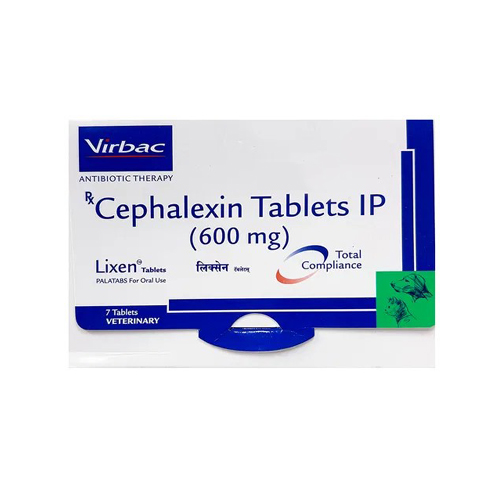
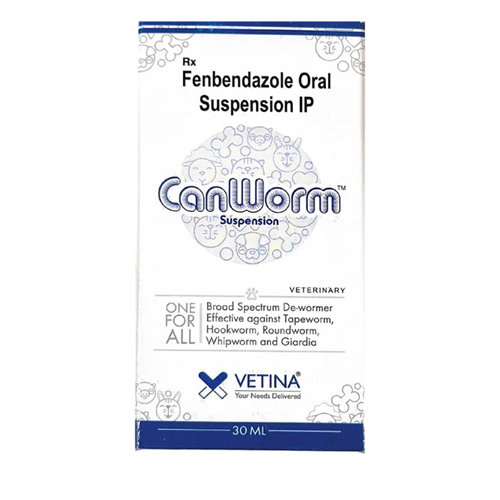



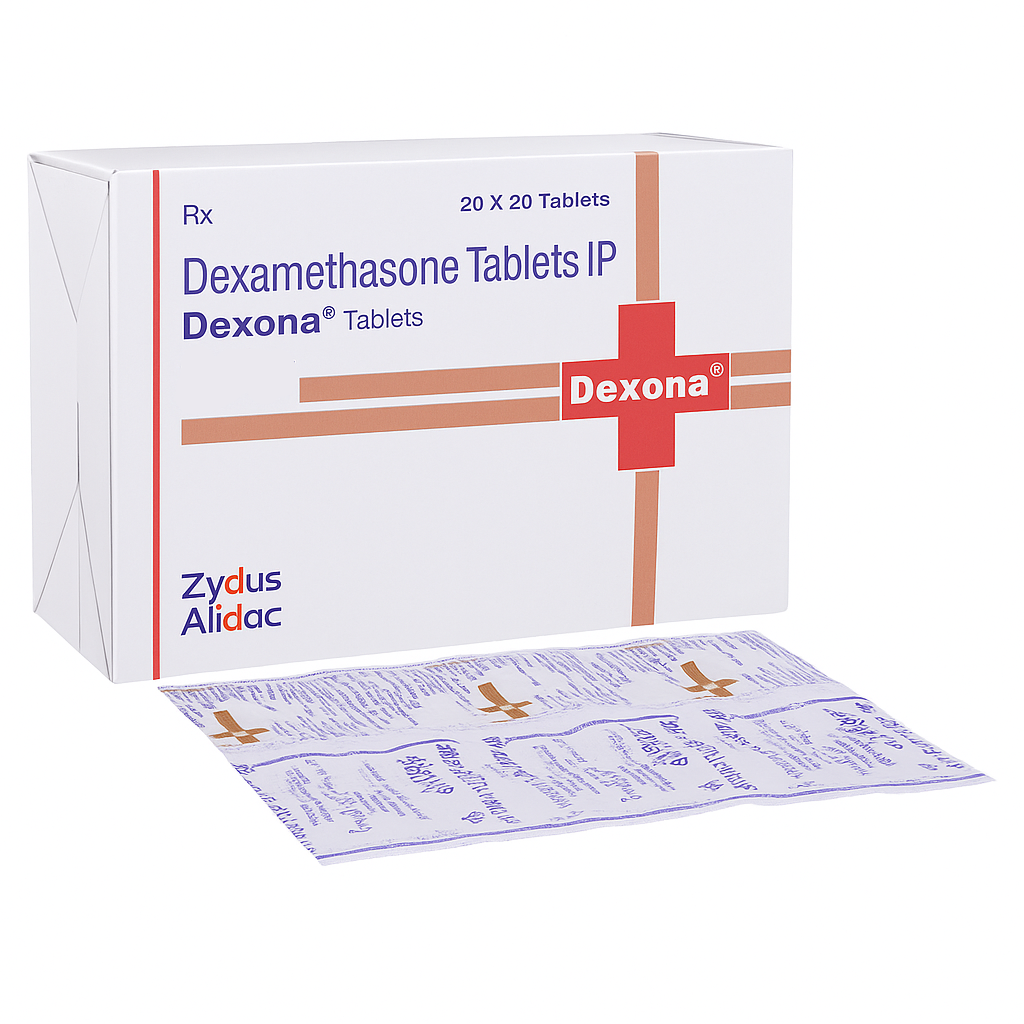

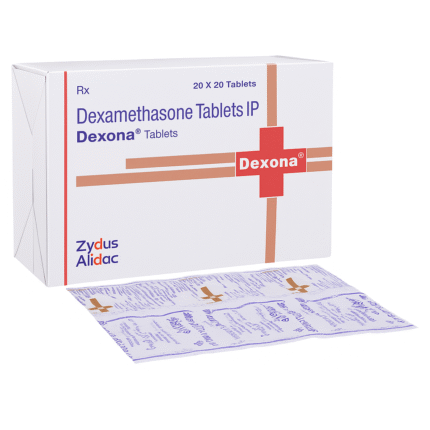

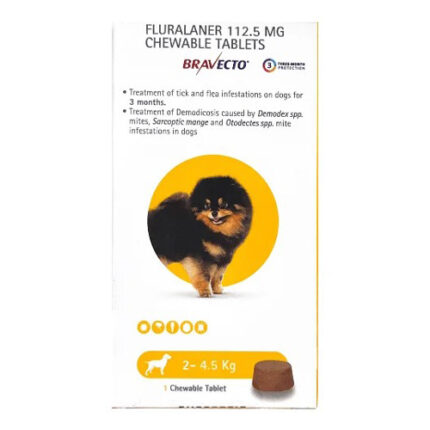






Reviews
There are no reviews yet.